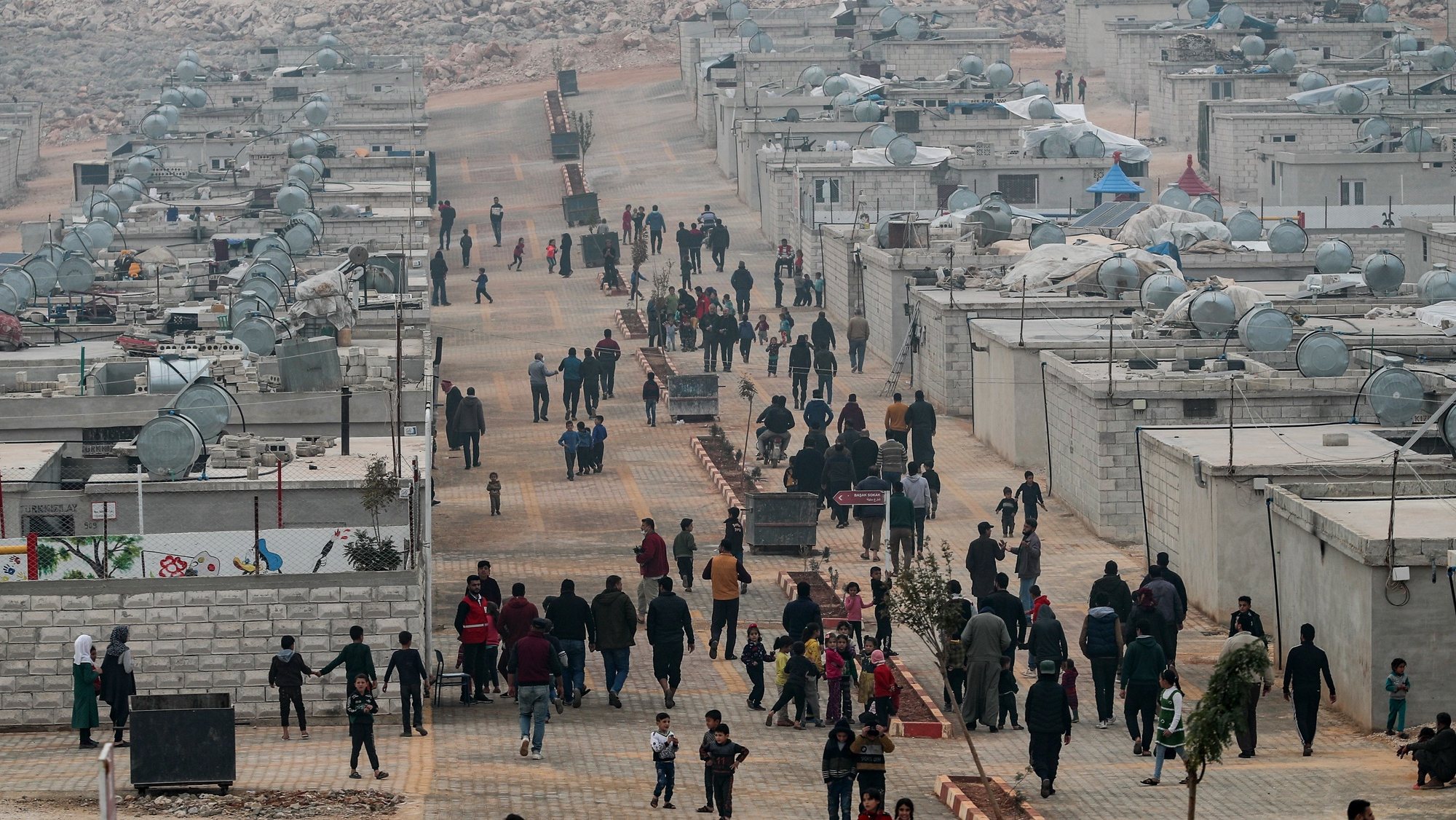In view of the consequences of the February earthquakes, the UN advocates for the creation of an enabling environment for humanitarian assistance to reach communities in a “safe, predictable and timely” manner.
The United Nations (UN) warned Thursday that although the 2023 humanitarian response plan for Syria is the largest in the world, it is only 6% funded, at a time of unprecedented need.
In a monthly ‘briefing’ to the Security Council on the political and humanitarian situation in Syria, the acting director of Operations and Advocacy of the United Nations Office for the Coordination of Humanitarian Affairs (OCHA), Tareq Talahma, He called for the extension of the generosity shown in recent weeks in the face of the earthquake that affected the region.
“The pressures show no signs of relief. Food prices have almost doubled in the last 12 months. The adequate supply of water is becoming less secure in many areas. Livelihoods remain out of reach for many people in Syria. These ever-growing needs will require continued determination by the international community,” Talahma said.
As Syria continues to grapple with the devastating humanitarian consequences of the February 6 earthquake and its aftershocks, which left at least 5,791 dead and 10,041 injured in the country, the UN called for the creation of an enabling environment for assistance humanitarian can come. communities in a “safe, predictable and timely” manner.
“The expanded cross-border modality proved to be essential. More than 900 trucks with the help of seven UN agencies have already reached northwestern Syria from Turkey through the three available border crossings at Bab Al Hawa, Bab Al Salam and Al Ra’ee,” Talahma said.
The UN Special Envoy for Syria, Geir Pedersen, also participated in the Security Council meeting, where he reiterated that “absolutely vital” continues to provide resources to support the earthquake emergency response and humanitarian responseboth in Syria and in neighboring countries, which are in “immense suffering as a result of the conflict.”
Pederson also noted that despite having registered a “sustained calm” in the week after the earthquakes – with the parties to the conflict refraining from hostilities – there was an increasing increase in incidents.
“Regular exchanges of shelling and rocket fire on the front lines in the northwest and northeast; Cross attacks by the terrorist group HTS [‘jihadistas’ Hayat Tahrir al-Sham]; US claims of rocket attacks on troops in Deir-ez-Zor; (…) attacks by the Islamic State; and other airstrikes attributed to Israel, including at Aleppo International Airport,” the UN envoy reported.
“My concern is not only for the damage that this violence causes to civilians. We have seen in the past that small incidents can trigger a broader escalation. This must be avoided at all costs.”
The UN envoy also expressed concern that the Syrian Constitutional Committee has not met for ten months. “This sends a worrying message: Syrians’ ability to seek a comprehensive solution is being held hostage by problems unrelated to their country. The Committee must resume its work in Geneva in a spirit of compromise, substance and rhythm,” he urged.
“The current situation is so unprecedented that it requires leadership, bold ideas and a cooperative spirit. A political solution is the only way forward for Syria,” added Geir Pedersen.
Also at the meeting, US Ambassador Jeffrey DeLaurentis accused the Bashar Al-Assad regime of of “never having seriously sought peace” and of having committed “atrocities, some of which rose to the level of war crimes and crimes against humanity””Hiding behind their bosses: Russia and Iran.”
“The Assad regime’s refusal to participate in Constitutional Committee meetings in recent months, after nine rounds of meetings in which the regime attended but acted in bad faith, is a clear demonstration of Assad’s belief that he can attack or starve the Syrian people into submission. DeLaurentis said.
“Assad remains the brutal dictator whose regime repeatedly used chemical weapons against his people. (…) The tragedy of the earthquake did not transform Assad into a statesman worthy of embracing. Only a genuine, comprehensive and irreversible reform will achieve that.”, defended the US diplomat.
The Syrian ambassador, Bassam al-Sabbagh, accused the United States, the United Kingdom and France – permanent members of the Security Council – of destructive policies and of trying to interfere in the internal politics of the country.
Al-Sabbagh accused the three Western countries of trying to mold public opinion against Syria and trying to avoid responsibility for the suffering of the Syrian people.
The Syrian diplomat also said that humanitarian aid is being politicized by the United States and the European Union, which impose “illegal sanctions against Syria.”
Source: Observadora
